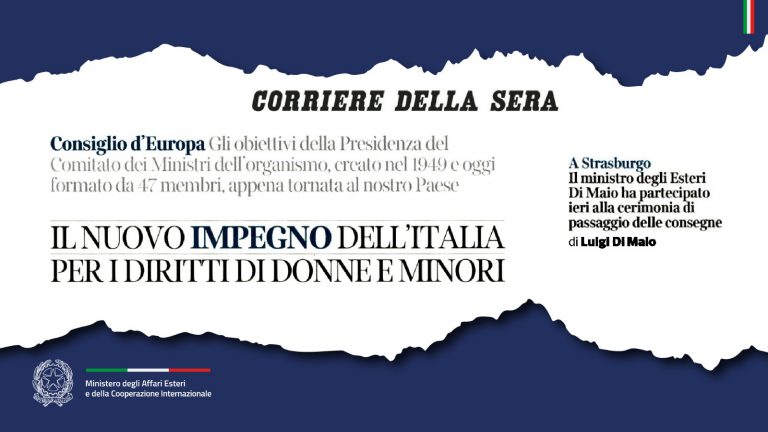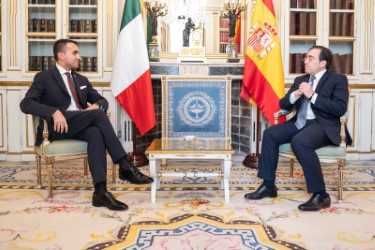Next 11 and 12 June, Trieste will host the annual meeting of the Foreign Ministers of the 17 Member Countries of the Central European Initiative (CEI). The meeting will be chaired by Minister Enzo Moavero Milanesi, who recalls that the CEI constitutes the “original and consolidated assembly of the central-eastern European and Balkan Countries. The CEI, which celebrates its 30th anniversary this year, was and remains an ideal and operating bridge between the people and governments of a significantly large area of the continent. Moreover, it has become an established forum of debate and cooperation of considerable relevance, also because it unites the States that are members of the European Union with the States that are not.”
The meeting will be attended by the ministers of Albania, Belarus, Bosnia-Herzegovina, Bulgaria, Croatia, Italy, North Macedonia, Moldova, Montenegro, Poland, Czech Republic, Romania, Serbia, Slovakia, Slovenia, Ukraine, and Hungary, as well as by the representatives of regional and international Organizations (European Bank for Reconstruction and Development, BERS; the Organization for Security and Co-operation in Europe, OSCE; the Black Sea Cooperation initiative; the Council of the Baltic Sea States, CBSS; the Regional Cooperation Council for South East Europe, RCC; and the European Commission).
Trieste and the Region of Friuli Venezia Giulia will host the meeting and the associated initiatives envisaged in the intense working agenda. Minister Enzo Moavero Milanesi said: “The logistic choice is symptomatic of the CEI’s deepest soul: Trieste, with its historic and geographical vocation and with its natural cosmopolitanism, is the utmost expression of the will of the member Countries to work in mutual respect, drawing upon their respective cultures, traditions and economic and social conditions to build together a better future for everybody.” The Minister went on to heartfeltly thank the President of the Autonomous Region, Massimiliano Fedriga, Mayor Roberto Dipiazza and the Secretary General of the CEI, Roberto Antonione, for their organizational efforts.
The CEI was established in November 1989, shortly after the fall of the ‘Iron Curtain’ and the end of the division of Europe put in place after World War II, at the proposal of the then Italian Foreign Minister Gianni De Michelis, who has recently passed away. It was first established as a ‘Quadrangular’ agreement between States with different geopolitical systems (Italy, Austria, Yugoslavia and Hungary). In the course of the following three decades, it has progressively expanded its membership to the present 17 member Countries and, above all, it has created a special relationship between their governments and their people.
In 2019, a year under its rotating Presidency, Italy intends to “corroborate the specific value added of the CEI, increasing the effectiveness of sharing and cooperation mechanisms and outlining ambitious common objectives, capable of really meeting the aspirations and needs of citizens,” said Minister Moavero. He added: “For these reasons in Trieste we will be talking about: security, including cybersecurity and combating terrorism and international crime; guaranteeing the Rule of Law and promoting sustainable development; economic cooperation and investments, especially in infrastructure in the transport and energy sectors; social and employment policies; protecting the environment and the historical, artistic and cultural heritage; product quality and consumer protection; scientific research, innovation and intellectual property; educational opportunities and connecting schools, universities and training institutes.”
The Italian Presidency also aims to reinforce the role of the CEI within major International Organizations, especially at the United Nations, where the CEI has the relevant status of Observer. At the same time, it intends to intensify and improve joint intergovernmental and interparliamentary actions, thus launching a debate on the possible role of CEI at local and regional level, with a view to making its existence and actions more visible to the citizens of member Countries. In the same perspective, the Italian Presidency intends to propose the development of specific initiatives for young people, by kicking off a full-fledged ‘agenda for youth’.



